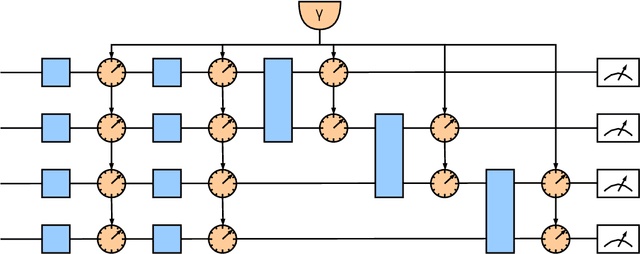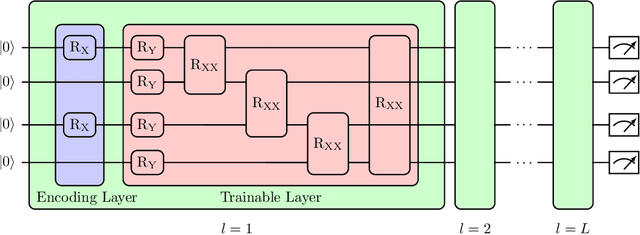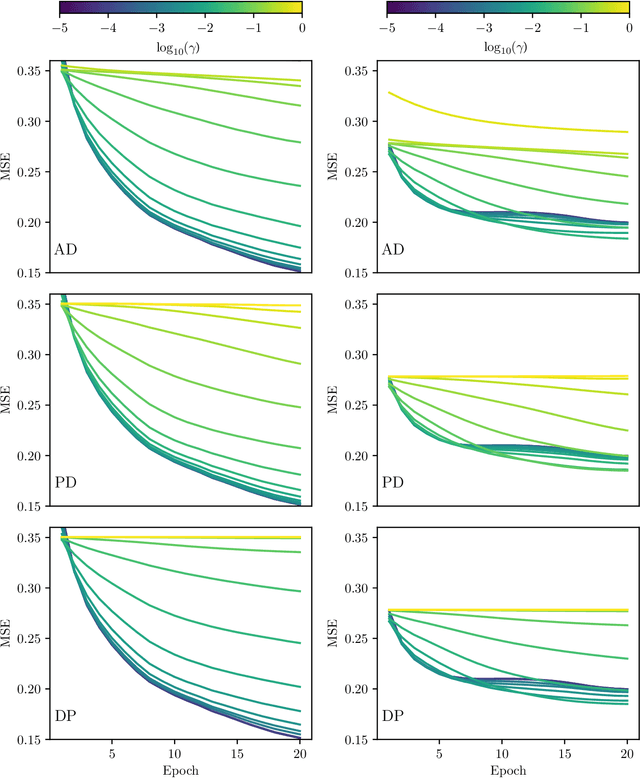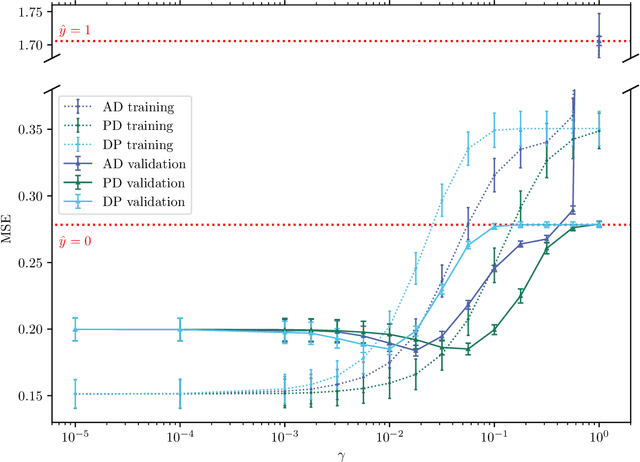Viacheslav Kuzmin
TQml Simulator: Optimized Simulation of Quantum Machine Learning
Jun 06, 2025Abstract:Hardware-efficient circuits employed in Quantum Machine Learning are typically composed of alternating layers of uniformly applied gates. High-speed numerical simulators for such circuits are crucial for advancing research in this field. In this work, we numerically benchmark universal and gate-specific techniques for simulating the action of layers of gates on quantum state vectors, aiming to accelerate the overall simulation of Quantum Machine Learning algorithms. Our analysis shows that the optimal simulation method for a given layer of gates depends on the number of qubits involved, and that a tailored combination of techniques can yield substantial performance gains in the forward and backward passes for a given circuit. Building on these insights, we developed a numerical simulator, named TQml Simulator, that employs the most efficient simulation method for each layer in a given circuit. We evaluated TQml Simulator on circuits constructed from standard gate sets, such as rotations and CNOTs, as well as on native gates from IonQ and IBM quantum processing units. In most cases, our simulator outperforms equivalent Pennylane's default_qubit simulator by up to a factor of 10, depending on the circuit, the number of qubits, the batch size of the input data, and the hardware used.
Method for noise-induced regularization in quantum neural networks
Oct 25, 2024



Abstract:In the current quantum computing paradigm, significant focus is placed on the reduction or mitigation of quantum decoherence. When designing new quantum processing units, the general objective is to reduce the amount of noise qubits are subject to, and in algorithm design, a large effort is underway to provide scalable error correction or mitigation techniques. Yet some previous work has indicated that certain classes of quantum algorithms, such as quantum machine learning, may, in fact, be intrinsically robust to or even benefit from the presence of a small amount of noise. Here, we demonstrate that noise levels in quantum hardware can be effectively tuned to enhance the ability of quantum neural networks to generalize data, acting akin to regularisation in classical neural networks. As an example, we consider a medical regression task, where, by tuning the noise level in the circuit, we improved the mean squared error loss by 8%.
 Add to Chrome
Add to Chrome Add to Firefox
Add to Firefox Add to Edge
Add to Edge